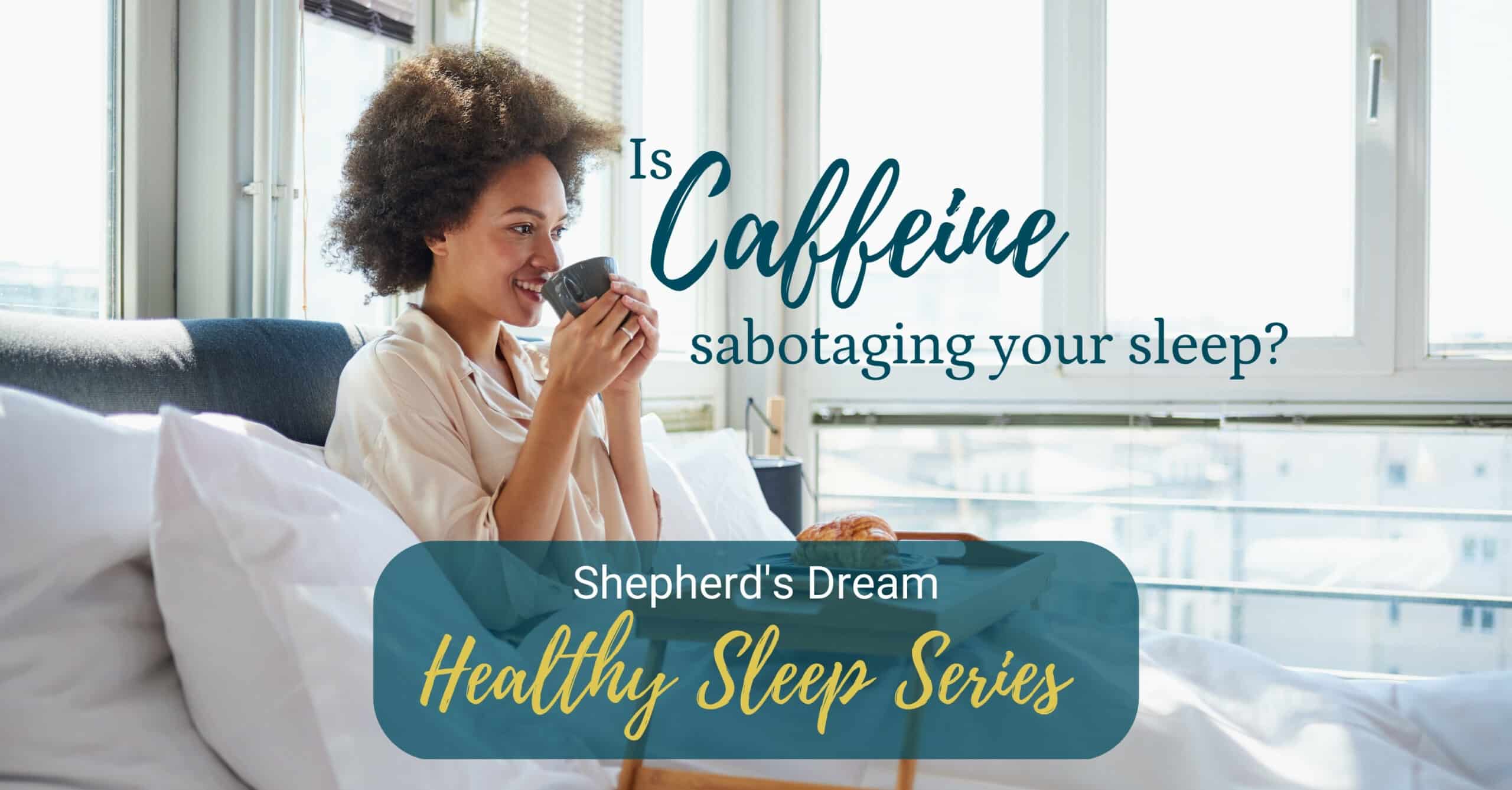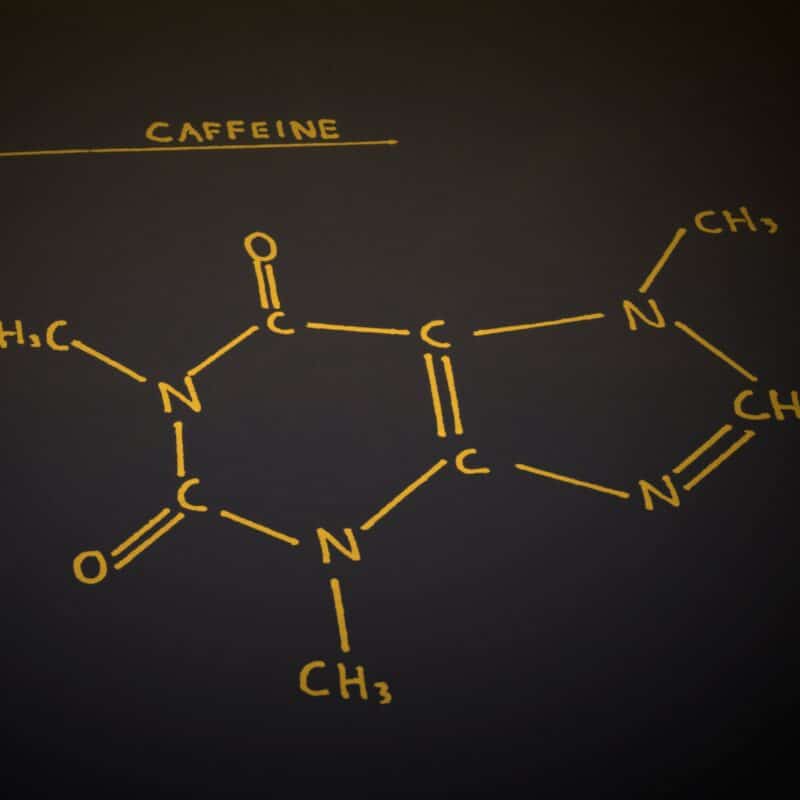Healthy Sleep Series: Caffeine
How Your Daily Fix Could be Sabotaging Your Sleep
Mmm…caffeine…that super helpful molecule that fuels our productivity, often immersed in delicious beverages that we imbibe all day long in an attempt to become super heroes. Or, you know…just make it through our day.
Caffeine is ubiquitous and even celebrated in our culture—from the usual coffee and tea, to soda and energy drinks like Red Bull—but it does not come without its side effects. In addition to causing uncomfortable jitters, it may also be the reason many people have a hard time getting great sleep.
So put down that 20 ounce triple mocha and let’s look at how caffeine affects our sleep, and whether there’s a more responsible way to continue our habit.

So What’s the Lowdown?
Caffeine is a unique molecule with special properties. It works by blocking adenosine in the brain, a chemical responsible for helping to induce sleepiness, thereby allowing caffeine drinkers to feel more alert and awake. Simple, right?
Well…not everyone responds to caffeine in the same way. There are genetic components, such as whether you’re a fast or slow caffeine metabolizer. Popular genetic testing sites like 23andMe can identify that for you, though you may already know from your own experiments. Genetics can also play a role in how you respond to caffeine, whether you fly high on waves of creativity and brilliance, or just get shaky and anxious.
Then there’s the issue of caffeine tolerance. When caffeine is consumed on a regular basis, our body becomes accustomed to that intake, and when we go without after developing this dependency, it can cause headaches, fatigue, difficulty focusing, and a seriously cranky disposition. Tolerance has more to do with quantity and the body’s response. As with all addictions, you may notice that the same amount of caffeine each day yields diminishing returns over time.
Tolerance is different from a caffeine adaptation, which simply means that your body has shifted to function with caffeine and expect it daily around the same time. Anyone drinking caffeine on a regular basis is caffeine adapted, but amongst that group, there will be different levels of tolerance.
Morning Coffee = Nighttime Tossing & Turning?
Caffeine has what’s known as a rather long half life, which is a measurement of how long it takes for the presence of it in your system to decrease by half and then half again and then again, until it’s a negligible amount.
Based on this, experts suggest that we give ourselves somewhere between 8-12 hours to clear the caffeine from our system so that it doesn’t interfere with the processes necessary for sleepiness. As mentioned above, your mileage may vary, but anyway we slice it, this is bad news for afternoon caffeine drinkers who depend on the lift to get through their day. In fact, there’s evidence to suggest that our morning beverage may actually be contributing to that afternoon slump in the first place. Read on.
Uh Oh…What Do We Do?
Without a doubt, it is best not to be dependent on anything. Many people report positive experiences from making the decision to stop drinking caffeine. If caffeine has become a constant obligatory necessity instead of a daily joy that enhances your life, it may be time to rethink your habit.
For many of us, the reality is that the boost we get from caffeine is just too necessary, helpful, and even downright enjoyable. As with many life enhancing tools, caffeine needs to be used wisely and correctly in order to be of benefit and not harm.
So what can we do to be responsible caffeine addicts? Here’s a list of best practices:
- Calculate your dosage according to 1-3 milligrams of caffeine per kilogram of body weight. So for someone who weighs 150 pounds, this would equal an intake from 68-204 milligrams. For reference, a 12-ounce soda is roughly 30-40mg, an 8-ounce cup of green or black tea is around 30-50mg, an 8-ounce cup of coffee weighs in at 80-100mg, and each shot of espresso has about 65mg. Sorry coffee drinkers! Those multiple servings or super-sized lattes in the morning may not be a great idea.
- Drink your first serving 90-120 minutes after waking. This allows your body to clear out any residual adenosine that may be hanging around before you block it with caffeine. Why does this matter? Afternoon caffeine folks, listen up! Because any residual adenosine that is blocked by caffeine just hangs around, waiting until the caffeine starts wearing off in the afternoon, and then it soaks your brain in sleepy chemicals. This simple practice alone may eliminate that afternoon slump you’re having. Morning exercise and sunlight viewing also help to clear adenosine, learn more on that in our post on creating the ultimate sleep routine.
- Skip the afternoon refill. If you give the above suggestions a try, you may not need it anymore! But if you’re dependent on an afternoon run to your neighborhood coffee shop to get through the workday, it’s highly likely it’s disrupting your sleep and contributing to the cycle of needing that afternoon cappuccino in the first place. When you’re not having caffeine every afternoon, you might find that on those days when you REALLY need it for that deadline or to make up for that restless night of sleep, it works much better in a targeted fashion rather than as a habit. Be sure to check out our other Healthy Sleep Series edition on Cortisol to learn more about energy management.
Phew! Thanks for Not Taking My Coffee Away.
Let’s be honest—caffeine is the best socially-acceptable performance-enhancing drug. And for all its potential drawbacks, caffeine does also have several health benefits:
- Protection against neurodegenerative diseases like Alzheimer’s and Parkinson’s.
- Improves focus, alertness, and mood.
- Diminishes headache.
- Can increase strength outputs and your ability to utilize oxygen during workouts and physical activity.
Sleep is a complex physiological process, and so is optimizing our wakeful time too. Learning how it’s all connected and developing healthy habits can make all the difference.
Thanks for tuning in, we hope this has been stimulating! If you’d like to go into further depth on this, we highly recommend checking out Andrew Huberman’s podcast episode on caffeine found here, and Michael Pollan’s short audiobook, Caffeine: How Caffeine Created the Modern World, where he discusses the history of caffeine and its effects on us.
In the meantime, give us a follow on Instagram and check us out on Pinterest for more healthy sleep tips. Sweet dreams!



